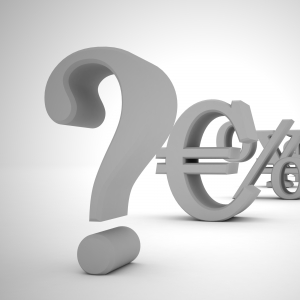Are you interested to get acquainted with essentials of forex trading? Do you want to have your share out of this huge international money making market? If yes, then you have reached at right place because before you invest even a dollar into this huge lucrative business you must have understanding about fixed and floating exchange rates, which cause unpredictable fluctuations resulting in colossal profit or loss.
image: stock.xchng
What is the Meaning of Exchange Rate?
Before we delve deep into comparing fixed and floating rates, it is imperative to understand the meaning of exchange rate first off. Exchange rate is rate used to exchange respective currency with another currency. It depicts the value of one currency in relation with any other currency. It acts like a standard price for specific currency you want to buy for certain use. For instance, you want to buy Egyptian pound for some reason and have dollars as your main currency then you’ll see the exchange rate which is almost 1:5.5. It indicates that you can but 5 and half Egyptian Pounds for 1 dollar only. Same rule applies for other currencies and their trading depending upon their current exchange rate.
Fixed Exchange Rates
Fixed rate is also known as pegged rate set and maintained by government’s central bank. Usually price is set against USD which is main currency, but it can be set for other major currencies as well like Euro and Yen etc.
Floating Exchange Rates
As the name indicates this rate floats or fluctuate depending upon its demand and supply. It is also known as ‘fluctuating’ or ‘self-correcting’ rate which can alter anytime during the day. This rate is determined by private markets which keep track of demand and supply. If demand of any currency decreases, it leads to expensive imports which creates extra room for local jobs and services. In this way it corrects itself automatically by changing scenario.
image: stock.xchng
Why Peg or Fix Exchange Rate for Currency?
The difference between two exchange rates is simple but here a question arises that what is the rationale behind pegging local currency when it can correct itself according to its demands and supply? The rationale behind pegged exchange rate is that:
- Central bank which has high level of foreign reserves is considered responsible for maintaining local currency exchange so it buys or sell it at fixed rate without any concern with fluctuating rate in private market. This thing ensures a balance in the supply and demand of local currency.
- Currencies are pegged to create a stable environment in local market not only to avoid unhealthy impact of changing rate in private market, but also to welcome foreign investments. In this way the investor knows the value of his investment with no fear of momentary changes in exchange rate in private markets.
- Pegged currency also proves helpful in lowering the inflation issue which leads towards generating demands of local currency resulting in more stability in country’s economic state.
Is It Possible to Maintain Pegged Currency in Long Run?
After this above discussion, another question comes to mind that if it is so easy to bring stability to the economic condition of a country then why we see countries experiencing financial collapse, why inflation and unemployment are major financial issues today? So the reason is that pegged currency can’t be maintained for longer time period. Sometimes government itself fails to cope with its pegged rate and then review it to change accordingly by assessing the value of influencing factors.



